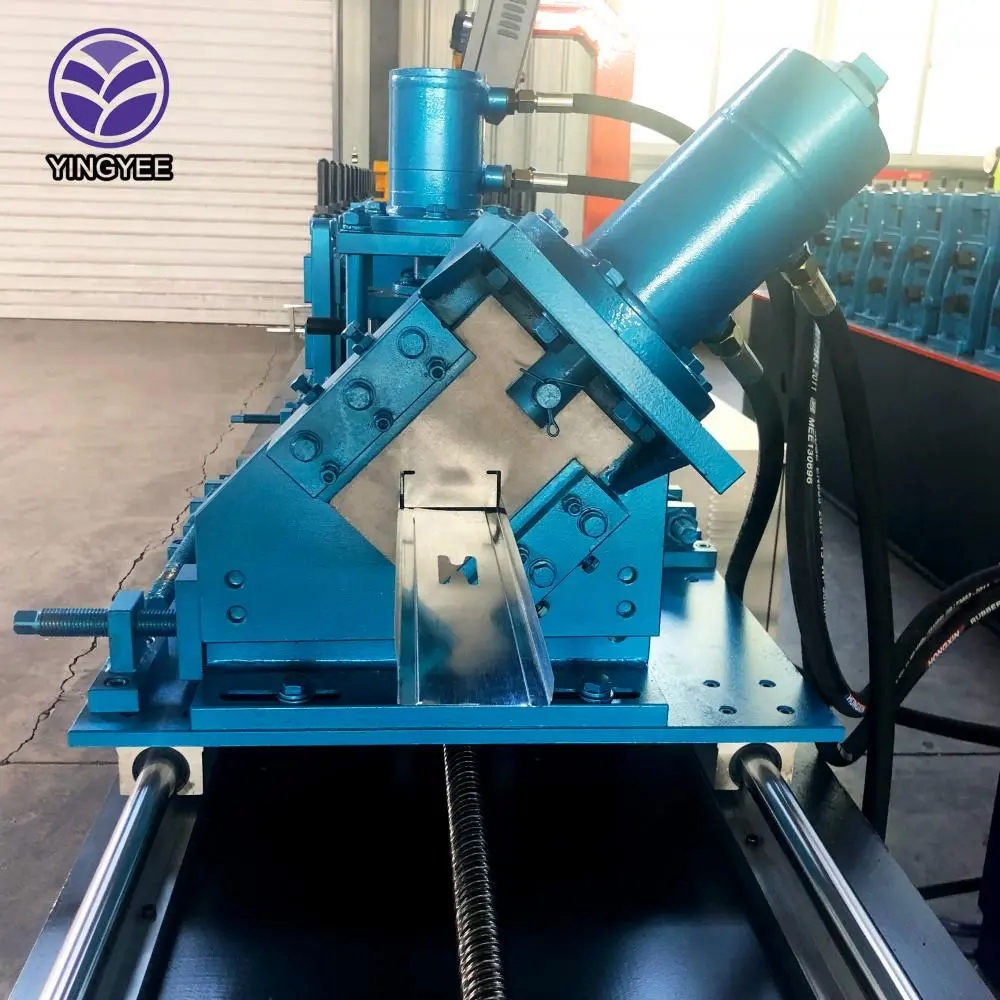
C-Shaped Steel Roll Forming Machine Revolutionizing Metal Fabrication
The demand for high-strength, lightweight structural materials has been on the rise in various industries, from construction to automotive manufacturing. Among the key players in the metal fabrication landscape is the C-shaped steel roll forming machine. This advanced machinery plays a pivotal role in producing C-shaped steel profiles that are essential for a multitude of applications.
What is a C-Shaped Steel Roll Forming Machine?
A C-shaped steel roll forming machine is specifically designed to create C-section steel profiles through a continuous process of shaping flat metal strips. The machine employs a series of rollers that gradually transform flat steel coils (usually made from cold-rolled or galvanized steel) into C-shaped sections. This process is characterized by its efficiency and ability to produce high volumes of consistent, precise products, making it an invaluable asset for manufacturers.
Advantages of C-Shaped Profiles
C-shaped steel profiles are widely used in constructions due to their robustness, versatility, and economic advantages. These profiles are vital for many structural applications, including the framing of buildings, support systems for roof structures, and as components in automotive designs. Their unique shape provides substantial strength while using less material than traditional solid beams, resulting in cost savings and reduced overall weight.
The Roll Forming Process
The roll forming process begins with feeding flat steel strips into the machine. The strips pass through a series of rollers configured to gradually bend and shape the metal into the desired C-section profile. Each roller is meticulously designed to serve a specific purpose—some may reshape the metal, while others may create the necessary flanges.

This process is continuous, meaning that as long as the metal strip is supplied, the machine can keep producing C-shaped profiles, leading to high production rates. Once formed, the profiles can be cut to specified lengths based on end-user requirements, which adds to the machine's versatility.
Customization and Adaptability
One of the significant advantages of using a C-shaped steel roll forming machine is its potential for customization. Manufacturers can adjust the machine settings to create various C-profile sizes and dimensions, allowing for tailored solutions that meet specific project requirements. This adaptability makes it possible to serve industries with diverse needs, from commercial construction to residential buildings.
Automation and Technology Integration
Modern C-shaped steel roll forming machines are often equipped with advanced technologies such as programmable logic controllers (PLC) and computer numerical control (CNC) systems. These technologies enhance precision, reduce waste, and increase the overall efficiency of the production process. Moreover, automation allows for remote monitoring and operation, thus improving safety and reducing labor costs.
Conclusion
In conclusion, the C-shaped steel roll forming machine stands as a cornerstone in modern metal fabrication. Its ability to produce high-quality, lightweight structural profiles efficiently and cost-effectively has transformed how industries approach construction and manufacturing. As the demand for innovative and sustainable building materials continues to grow, the importance of advanced machinery like C-shaped steel roll forming machines will only increase. Adopting such technologies allows manufacturers to meet evolving market needs while ensuring superior product quality. The future of construction and manufacturing lies in such innovations, where efficiency and customization are paramount.